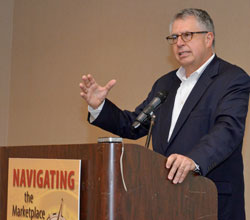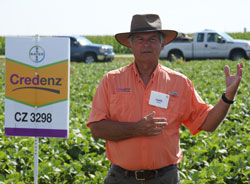 During the InfoExpo at this year’s Ag Media Summit I visited with Tom Becker, FMC Retail Market Manager, and got an update on the pending transaction with Dupont. Tom says expectations are that the deal will be finalized during the 4th quarter this year.
During the InfoExpo at this year’s Ag Media Summit I visited with Tom Becker, FMC Retail Market Manager, and got an update on the pending transaction with Dupont. Tom says expectations are that the deal will be finalized during the 4th quarter this year.
FMC is acquiring certain products from Dupont which Tom says will put the company into the top five crop protection companies in the world. The products will really help round out FMC’s portfolio of solutions for farmers.
Lisen to my interview with Tom here: Interview with Tom Becker, FMC
View and download photos here: 2017 Ag Media Summit Photo Album






 Every farm bill gets a little more difficult to pass with an increasingly urban Congress, which is why the peanut industry needs an advocate like Bob Redding in Washington, D.C.
Every farm bill gets a little more difficult to pass with an increasingly urban Congress, which is why the peanut industry needs an advocate like Bob Redding in Washington, D.C.





